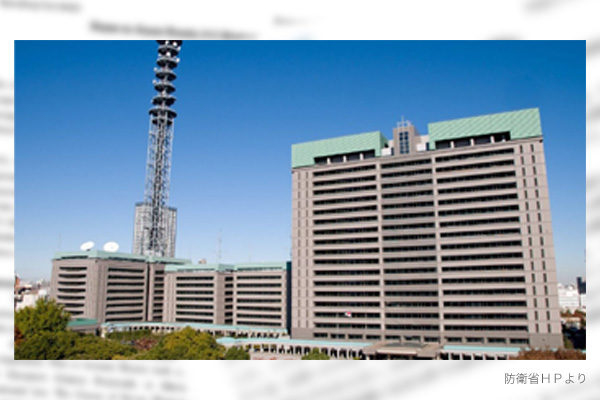The yen’s depreciation and price hikes have boosted defense equipment procurement cost, endangering Japan’s planned “fundamental reinforcement of defense capabilities.”
“Given exchange rate fluctuations, it is necessary to realistically review whether Japan can reinforce defense capabilities within the framework of 43 trillion yen over five years,” said Japan Business Federation (Keidanren) Honorary Chairman Sadayuki Sakakibara when chairing a meeting of experts at the Ministry of Defense on February 19.
In response, Defense Minister Minoru Kihara on February 20 said: “The role of the Ministry of Defense is to steadily implement the necessary reinforcement of defense capabilities within the framework of 43 trillion yen. We are not considering revising the plan.” Finance Minister Shunichi Suzuki on the same day said: “I understand that Sakakibara’s opinion is from the standpoint of an expert. The government does not intend to exceed this level.” They thus indicated a negative attitude against the Sakakibara suggestion.
I feel very uncomfortable with the remarks made by the two ministers. The purpose of the planned defense buildup should be the “fundamental reinforcement of defense capabilities,” rather than the achievement of 43 trillion yen in defense spending.
“Necessary defense capabilities” as a basic premise
On December 16, 2022, the government released the so-called three strategic documents – the National Security Strategy, the National Defense Strategy, and the five-year Defense Buildup Program – and decided to spend about 43 trillion yen on defense in five years, after “considering the capabilities of the Self-Defense Forces, such as equipment that should be developed, in order to realize a fundamental reinforcement of defense capabilities in the face of the harsh reality for Japan and protect Japan in the future,” as noted by Prime Minister Fumio Kishida.
Kishida further said on the day of the three documents’ release:
“When considering the reinforcement of our defense capabilities on this occasion, after making assumptions about the state of affairs of various elements and, given the capabilities of other countries and new ways to engage in combat, we ran extremely realistic simulations to determine if we would be able to deter threats against our country with our SDF’s current capabilities, and if we would be able to fully defend our country if those threats were to be realized.
“First of all, I would like to emphasize that we have not been discussing anything on the assumption of any numerical target. The first thing we have done is to accumulate the contents of the fundamental reinforcement of our defense capabilities.”
Kishida’s statement means that the government has accumulated necessary defense capabilities to protect Japan, thoroughly streamlined and rationalized the plan, and found the minimum necessary defense capabilities would cost about 43 trillion yen at the then currency exchange rate. The top priority should be, above all, the development of the “accumulated” defense capabilities. If the yen’s depreciation makes it impossible to develop the capabilities with 43 trillion yen, Japan will have no choice but to increase the spending.
Return to the “basic defense force concept” is irresponsible
Some argue for further streamlining and rationalization. However, the 43 trillion yen has been achieved through thorough streamlining and rationalization. It is unrealistic to cover the 30% decrease resulting from the yen’s depreciation with further streamlining and rationalization efforts.
The idea of capping the five-year defense spending at 43 trillion yen anyway can be viewed as a return to the “basic defense force concept” that was introduced in 1976. The international situation will not allow Japan to return to the internationally rare and irresponsible concept that assumes no threat or crisis and only requires Japan to prevent itself from becoming a power vacuum.
Kunio Orita is a member of the JINF Planning Committee and a special professor at Reitaku University. He is a retired Lieutenant General of the Japan Air Self-Defense Force.


